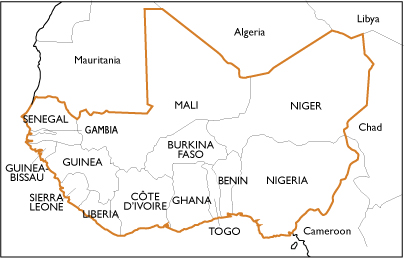Project - EN
FSP activities under this project focus on two key areas of interest to ECOWAS [1] and USAID:
1. Support for ECOWAS Joint Sector Review (JSR) process, by IFPRI and MSU
In support of the ECOWAS JSR process, MSU has prepared a series of three overview documents assessing the current state of regional fertilizer, seed and pesticide policies, while IFPRI is currently conducting a series of regional consultations to support JSR assessments in Cape Verde, Guinea, Sierra Leone, Niger and Liberia and Electronic Atlas (eAtlas) validation for Cote d’Ivoire, Niger, Nigeria, Senegal and Togo.
2. Uneven implementation of regional pesticide policies
In response to concerns expressed by ECOWAS Agricultural Commissioner Marc Atouga, to USAID/WA, about uneven rates of country implementation of regional policies, MSU and local partners in the region are currently conducting a series of case studies of uneven implementation of regional pesticide policies. First results from Mali are available here.
As early as 1992, Permanent Interstates Committee for Drought Control in the Sahel (CILSS) introduced regional pesticide regulations among its 9 original member countries. These early efforts have served as inspiration, motivation and as a model for the expanding regional pesticide regulations to the humid coastal countries of the ECOWAS region. Ongoing pesticide field studies in Gambia, Senegal, Mali, Guinea, Ghana and Nigeria aim identify key factors favoring and constraining national implementation of regional policies. In addition to the country case studies, the team will produce a synthesis brief outlining the key conclusions and practical recommendations for faster and more effective country implementation of ECOWAS regional input policies.

[1] The Economic Community of West African States (ECOWAS) is made up of fifteen member countries that are located in the Western African region: Benin, Burkina Faso, Cabo Verde, Côte d’Ivoire, The Gambia, Ghana, Guinea, Guinea Bissau, Liberia, Mali, Niger, Nigeria, Senegal, Sierra Leone and Togo. These countries have both cultural and geopolitical ties and shared common economic interest.


